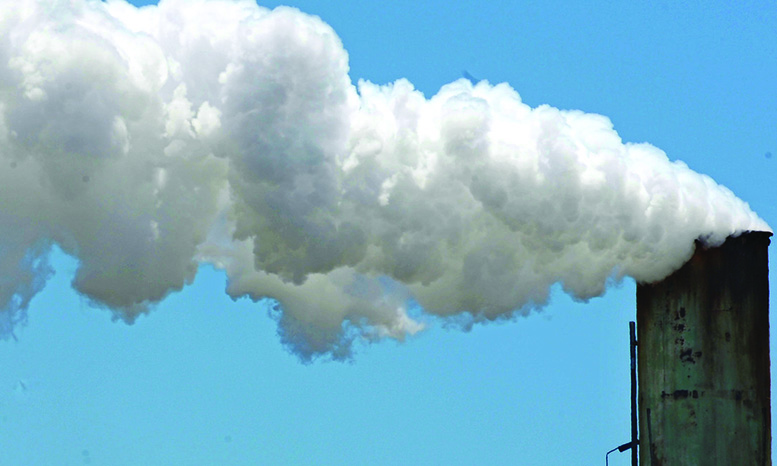PARIS: Global energy-related carbon dioxide emissions rose by six percent in 2021 to a record 36.3 billion tons, their highest ever level, the International Energy Agency said Tuesday. "The increase in global CO2 emissions of over 2 billion tons was the largest in history in absolute terms, more than offsetting the previous year's pandemic-induced decline," it said. It pointed to the widespread use of coal to power growth as the world economy rebounded from the COVID crisis. "The recovery of energy demand in 2021 was compounded by adverse weather and energy market conditions-notably the spikes in natural gas prices-which led to more coal being burned despite renewable power generation registering its largest ever growth," it said.
The IEA said the rebound of global CO2 emissions above pre-pandemic levels was largely driven by China, where they increased by 750 million tons between 2019 and 2021. "China was the only major economy to experience economic growth in both 2020 and 2021," it said. "The emissions increases in those two years in China more than offset the aggregate decline in the rest of the world over the same period." In 2021 alone, China's CO2 emissions rose above 11.9 billion tons, accounting for 33 percent of the global total. German Economy Minister Robert Habeck on Tuesday issued an "urgent appeal" to OPEC oil producers to ramp up output following a spike in prices and supply fears due to the Ukraine crisis.
Habeck called on top oil producing nations to "increase production in order to create relief on the market". "That would be a contribution" to easing the stress on firms and households, he said at a Berlin press conference, adding that it was "an urgent appeal" to OPEC. The plea came as the price of Brent crude, the international benchmark, soared by more than five percent ahead of an expected announcement by President Joe Biden of a US ban on Russian oil imports over Moscow's invasion of Ukraine. The price of a barrel reached $129.92. At last week's OPEC+ meeting, the 13 members of the Saudi-led OPEC group and their 10 allies, including Russia, agreed to hold firm on plans to stick to existing output targets through April.
Europe is heavily reliant on Russian energy imports, and Western sanctions against Russia have so far not targeted oil and gas. German Chancellor Olaf Scholz has called Russian energy supplies of "essential importance" for people's daily lives in Europe's biggest economy. The United States is set to move forward with an energy ban on Tuesday, with US media reports saying Biden will announce a stop for imports of Russian oil and liquefied natural gas. Russia accounts for less than 10 percent of US imports of oil and petroleum products, which means the impact on the world's largest economy would be easier to bear than for European economies. The OPEC+ oil cartel plans to boost production by just 400,000 barrels a day in April, the same pace as in recent months. Their next meeting is on March 31. - AFP











